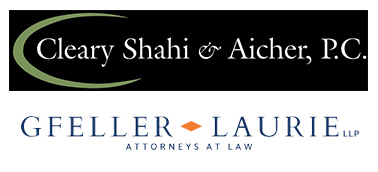April
2017
Indiana Appellate Court Finds that there is No Duty to Defend an Additional Insured until the Named Insured has Satisfied the SIR
Walsh Constr. Co. v. Zurich Am. Ins. Co., No. 45D05-1506-PL-43 (Ind. Ct. App. Mar. 28, 2017). An intermediate Court of Appeals in Indiana held that an insurer had no obligation to defend and indemnify an additional insured when the policy required the named insured to satisfy self-insured retention before the policy could be enforced against the insurer. A General Contractor hired a subcontractor to provide safe traffic patterns in connection with the construction of two interstates highways and required the subcontractor to indemnify it for any liability resulting from the subcontractor’s negligence. The subcontractor purchased a CGL policy from Zurich which named the GC as an additional insured. The policy had a $500,000-per-occurrence self-insured retention endorsement (the “SIR”), which required the subcontractor to pay all damages and defense costs until the per-occurrence amount was satisfied. A man injured while driving through the work zone sued the GC for negligence. The GC filed a third-party complaint against a subcontractor, notified Zurich of the lawsuit and requested a defense. Zurich refused to defend, and the GC filed a declaratory judgment action. The trial court held that Zurich had no obligation to provide coverage to the GC as an additional insured until the subcontractor had paid the $500,000 per-occurrence expenses.
On appeal, the Court held that the SIR endorsement amended Zurich’s obligation under the policy to defend an additional insured in the same way it did with respect to the named insured. The Court first noted that SIR endorsements, unlike deductibles, do not obligate the insurer to respond to a claim from “dollar one.” Rather, coverage is not triggered until after the policyholder pays the expenses up to the amount of the SIR. The Court then examined the particular SIR endorsement, which provided that the SIR was “the amount or amounts which you or any insured must pay for all compensatory damages and ‘pro-rata’ defense costs which you or any insured shall become legally obligated to pay” (Emphasis in the policy.) The Court interpreted this as meaning that in the event that the subcontractor or any of its additional insureds incurred legal liability, the initial cost burden was to be borne by the named insured. The SIR endorsement also stated that compliance was “condition precedent to coverage,” and specified that it was controlling in the event that it appeared to conflict with another policy provision. Finally, the Court noted that the SIR endorsement allowed the subcontractor to obtain the policy at a reduced premium. The Court also rejected the GC’s argument that the endorsement conflicted with Zurich’s right to settle any claim that may exceed the SIR.






